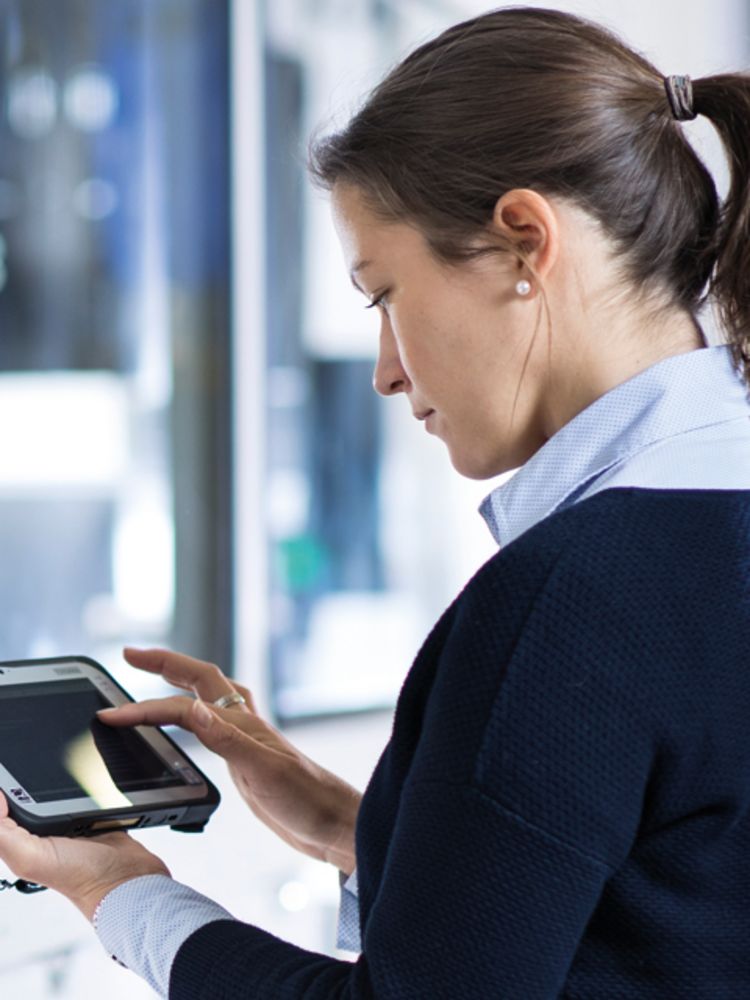Interview with BENTELER digitalization experts
"Makes life easier"
In the following interview, Cordt Erfling, Director Process Engineering, Michael Lindenblatt, Head of CoC Metrology (both BENTELER Automotive) and Madlen Büker, Project Manager Digitalization (BENTELER Steel/Tube), talk about topics in the field of Industry 4.0.

Q. Mr. Erfling, for the laymen amongst us, could you explain the difference between a conventional factory and a smart factory?
A. In our everyday lives, most of us experience smart technology in some form or other. Whether it’s asking a digital assistant to play our favorite song on our mobile phone or using 3-D printing to quickly build prototype products. In our smart factories we make use of the many opportunities these digital technologies offer. They allow us to work more efficiently and produce better quality products for our customers. For example, we analyse large amounts of data automatically to detect if and when machines need to be serviced before there is actually a problem. These analyses enable us, for example, to optimize the maintenance cycles of our welding systems, so that we can no longer intervene according to fixed maintenance schedules but in a condition-controlled manner. In the end, this also makes life easier for our employees and stabilizes the quality of our products.
Q. Would we recognize any of the technology being used in smart factories?
A. Certainly. Just one example that many people will be familiar with are our data glasses. At BENTELER, we’re using them with our Remote Expert platform. In this way, maintenance technicians in locations all around the world can get local support from experts without them having to be on site. The technician working on the spot wears the data glasses, which allows the remote expert to share the view and make suggestions about maintenance or repair. That not only saves time, it can also save an expert having to travel to site – an important consideration in these times of covid-19.
Q. Mr. Lindenblatt, how is Industry 4.0 helping BENTELER in the area of quality?
A. Digitization and automatic "real-time" data processing help us shorten our response times, identify focus problems faster and better, and close control loops. Production employees are relieved by receiving a fast and focusable overview of the data volumes in an automated manner. This eliminates the need for manual processing of the growing volumes of data. The setters and quality staff can concentrate even more on the systematic optimization of their processes. Automatic notifications when certain warning limits are exceeded also help to inform those responsible in good time. As already implemented at the Burgos (Spain) and An der Talle plants, for example.
Q. How can Big Data improve quality for our customers?
A. In our production processes, we have always been proud of our efficient quality control. With Big Data, we can still take a significant step forward. We gather millions of points of data from our manufacturing processes and products each day. New software tools enable us to analyse these vast quantities of data very quickly. We’ve even built some of these tools ourselves, thanks to cooperation between our IT and production experts. In this way, we can tailor them to our precise needs. For example, today we can detect and perceive changes in the product or process very quickly and initiate immediate measures. Even before the parts run out of tolerance. Now, we can take steps, perhaps by an adjustment to a production process, to ensure that products are consistently manufactured to our high standards. Which means greater consistency and lower costs.
Q. Mrs. Büker, how is digitalization affecting manufacturing processes at BENTELER Steel/Tube?
A. We are implementing Industry 4.0 in many areas at BENTELER Steel/Tube and digitalization is bringing many benefits. The more we digitalize our manufacturing processes, the more production data we collect. This gives us a wide range of insights into our production processes that weren’t available previously. We use this knowledge to help improve quality and increase output across the entire process chain.
Q. How are these insights being used in practice?
A. One example is optimized plant control. We’ve developed our own real-time recommendation system in tube production. Using Big Data, the system suggests the most favorable production values based on previous experience. It’s a good example of how we are making use of digitalization internally. In this way, we are not only increasing pipe quality but also customer satisfaction. At the same time, we also become more efficient internally. So, it's win-win on all sides!
